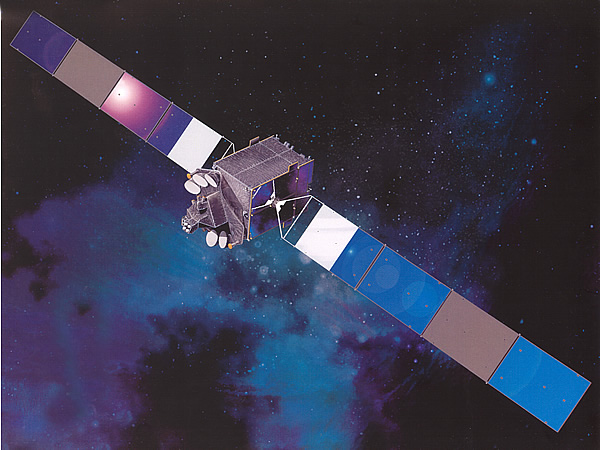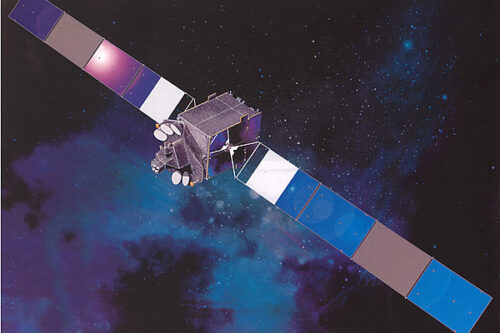
Back to selection
GEO Satellite
XTAR-EUR GEO
succesfull

Active
Launch date
12 February 2005
Country

Purpose
Military & Intelligence
Position
29° East
Manufacturer
Operator
HisdeSat
Launch operator
Launch vehicle
Ariane 5ECA
Expected lifetime
15+ Years

XTAR-EUR: Secure X-Band Communications Satellite for Government and Defense Use
Overview
XTAR-EUR is a secure geostationary communications satellite jointly developed by Spain and the United States to support government, military, and disaster relief operations, particularly over the Indian Ocean region. Originally operated by XTAR and Hisdesat, full ownership transferred to Hisdesat in 2020, reinforcing Spain’s commitment to building robust and secure communications with NATO allies and global partners.
The satellite plays a critical role in defense communications, offering X-band capabilities tailored for NATO-compatible SATCOM systems.
Satellite Design and Capabilities
XTAR-EUR is based on the LS-1300 bus developed by Space Systems/Loral. The satellite features:
-
Dimensions: 5.4 × 2.9 × 2.2 meters (boxed configuration)
-
Launch Mass: 3,631 kg (fully fueled)
-
Dry Mass: 1,412 kg
-
Power: Two retractable solar arrays delivering up to 3.6 kW
-
Stabilization: 3-axis stabilization for precise orbital positioning
Communications Payload:
-
12 X-band transponders, each with 72 MHz bandwidth
-
4 reserved for Spain’s Ministry of Defense
-
8 available for allied and governmental partners
-
-
Antenna: 2.4-meter diameter
-
Polarization: Supports both RHCP and LHCP
-
Coverage Area:
-
2 global beams covering Eastern Brazil, the Atlantic, Africa, Middle East, and Singapore
-
1 beam across the Mediterranean
-
4 steerable beams with overlapping capabilities
-
Reflective Cross-Section (RCS): 63,095 m²
-
Launch and Orbit Details
-
Launch Date: February 12, 2005, at 21:03 UTC
-
Launch Vehicle: Ariane 5 ECA
-
Launch Site: Guiana Space Centre, French Guiana
XTAR-EUR is positioned in geostationary orbit at 29° East longitude with an altitude of approximately 35,800 km, an orbital period of 1,436.1 minutes, and zero inclination. The satellite is monitored from Arganda del Rey and Maspalomas Ground Stations in Spain.
Operations are supported by teams in Washington, D.C., Madrid, and Palo Alto.
Operational Life
XTAR-EUR was designed for a 15+ year mission life, with planned decommissioning in 2023. During its service, it has played a vital role in delivering secure, high-reliability X-band communications for military, governmental, and humanitarian missions.
GEO Satellite
XTAR-EUR
succesfull
GEO Satellite
XTAR-EUR
succesfull
